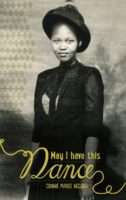We are all aware of the tribal root systems that exist within the fibre of our country, and the divisions they cause in us as a nation. We have all had the experience where, on addressing a stranger in one’s own language, that person responds with anger, saying, “I don’t speak your language. I only speak my own language.”
People seem to believe that their tribal affiliations run deeper than, say, their affiliations with their countrymen. But the fact is, such strong tribal alliance is a relatively new thing. Those who are old enough will remember that, in the days before freedom, tribal affiliation was not a matter of consequence at all. The glue that held us together was our shared experience of oppression and our united opposition to apartheid. Very, very rarely did anyone ask about tribal affiliations. We saw and regarded ourselves as simply African. This is why we resisted the Bantustan policy – because we disliked how it boxed in our identity.
With freedom, we lost this approach to our humanity. Since 1994, class and tribal distinctions have been growing in the population’s psyche. We have started to stratify ourselves into different cultural and class groups. We now have the “Black Diamond” class of successful African entrepreneurs; the izikhotane, young people who demonstrate how much money they have by burning expensive items; and many other groupings and gangs that have only emerged in the past two decades.
I don’t think the stratification of society into interest and tribal groups is, in itself, a problem. It only becomes a problem when we begin to see ourselves as belonging to a particular cultural group before we identify ourselves as being South African. We have eleven official languages in this country. That translates to at least eleven tribal groupings, each with its own traditions and cultural knowledge. We will never be able to create a South African identity that draws equally from all these groupings. It is just not possible.
What we need is to understand that we are all first and foremost South Africans. It is only once we all regard ourselves as one and the same in our South Africanness that our true identity will be able to emerge. I personally like to think of myself as a South African who is Xhosa, and not the other way around. As it is, the country is turning into a hodge- podge of racial and tribal groupings that are growing further from each other rather than together under the common goal of developing this beautiful country of ours.
***
Tell us: What are your thoughts on Connie Ngcaba’s ideas about tribalism?


